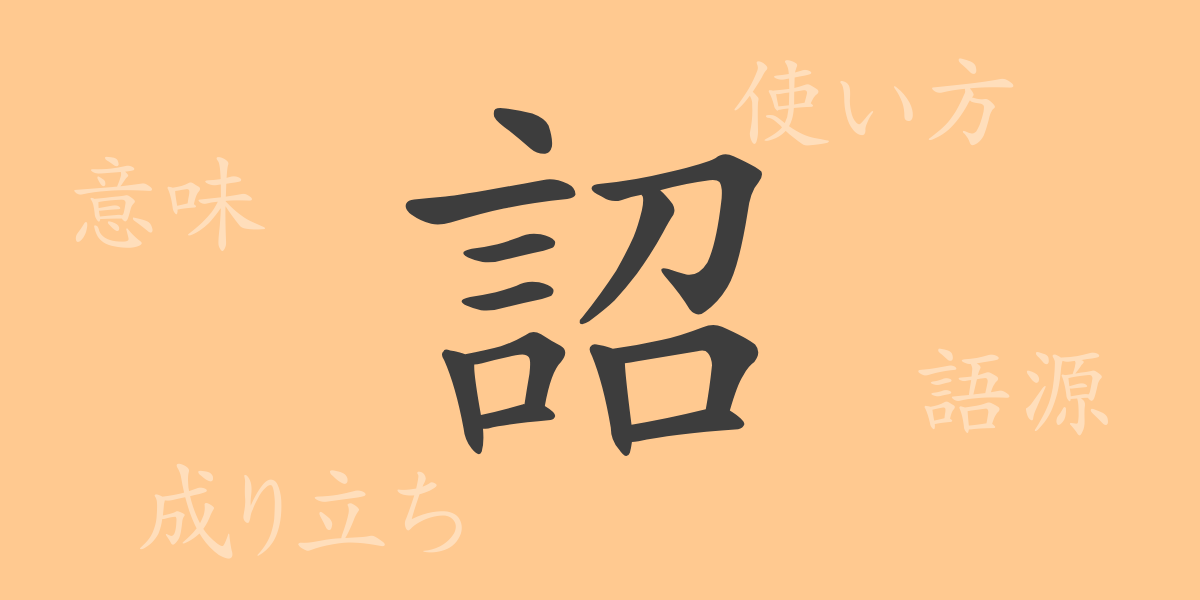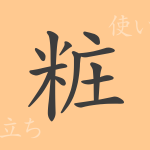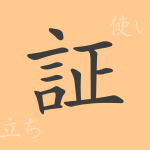Japanese language is richly endowed with kanji, each carrying its own history and significance. “詔(しょう)” stands out with its special presence, rooted deeply in historical and cultural importance. This article focuses on the kanji “詔,” exploring its origins, meanings, usages, as well as related phrases and proverbs. Join us as we delve into the fascinating world of “詔,” a common kanji in Japanese.
Origins of 詔(しょう)
The kanji “詔” originated from ancient China, originally representing commands or decrees issued by the Son of Heaven. It is formed from the combination of the “言” (speech) radical and “召” (to summon or call), symbolizing ‘commands expressed through words.’ Over time, it was adopted in Japan and came to be used particularly in imperial edicts and proclamations, known as ‘詔勅’.
Meaning and Usage of 詔(しょう)
“詔” primarily signifies ‘imperial command’ or ‘decree.’ In Japan, it is an important kanji used when the Emperor issues political decisions or commands to the nation. It typically appears in legal texts or official communications, and also features in historical contexts or literary works.
Pronunciation, Stroke Count, and Radical of 詔(しょう)
The kanji “詔” holds significant value in Japanese calligraphy and kanji education:
- Pronunciation: The on’yomi (音読み) is “ショウ”; it generally does not have a kun’yomi (訓読み).
- Stroke Count: “詔” consists of 12 strokes.
- Radical: The radical is “言” (speech).
Phrases and Idioms Using 詔(しょう) and Their Meanings
Phrases and idioms including “詔” reflect its formal and historical significance:
- 詔勅(しょうちょく): Refers to an imperial command or decree.
- 詔を奉じる(みことのりをほうじる): To obey an imperial command.
- 詔を下す(しょうをくだす): To issue a command.
- 詔を守る(しょうをまもる): To abide by the command.
Summary on 詔(しょう)
The kanji “詔” has played a crucial role throughout Japanese history and tradition, signifying imperial commands. Beyond its historical importance, “詔” is also revered in the realms of calligraphy and education, emphasizing its profound implications in understanding Japanese language and culture. Through this exploration, we hope you gain a deeper appreciation of the historical and cultural significance of “詔.”

























